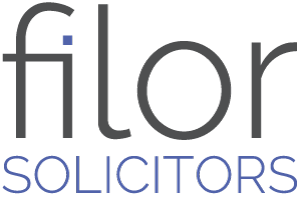Shareholder Disputes
Shareholder disputes can present significant challenges for businesses, threatening their governance, operations, and financial stability. Conflicts arise from misaligned expectations, power struggles, or differing interpretations of rights and responsibilities. Addressing these issues effectively requires not only a good understanding of legal principles but also a pragmatic approach to managing relationships and minimising disruption.
Shareholders, as co-owners of a company, have a vested interest in its success and proper management. Their rights are typically defined by the company’s constitutional documents, shareholder agreements, and applicable laws. Despite this framework, disputes often arise when individual interests clash with collective objectives. Key areas of contention include decision-making authority, profit distribution, and the valuation of shares during transfers or buyouts.
One common source of conflict involves the composition and control of the company’s board of directors. Disputes can emerge over the appointment, removal, or conduct of directors, particularly when minority shareholders perceive that decisions favour majority interests. In closely-held companies, these disagreements can become extremely personal, with competing visions for the business’s direction making matters worse.
Minority shareholders often face unique challenges, as their ability to influence decisions is limited by their lack of voting power. Claims of unfair prejudice frequently arise when minority shareholders believe their rights have been ignored or deliberately undermined. This can include exclusion from key decision making, denial of dividends, or actions that disproportionately benefit majority stakeholders. Addressing these concerns requires a delicate balance between protecting minority rights and maintaining effective governance.
Disputes over share valuation are another common flashpoint, particularly during buyouts, exits, or corporate restructuring. Determining a fair value for shares can be contentious, with disagreements over valuation methods and the inclusion of goodwill or other intangible assets. These disputes usually require forensic accounting expert input in order to establish an objective basis for resolution.
Deadlock situations, where shareholders are evenly split on key decisions, pose additional challenges. These impasses can paralyse the company, preventing it from operating effectively or pursuing growth opportunities. Deadlocks are particularly problematic in joint ventures or companies with equal ownership structures, where no single party has overriding authority.
The removal of a director can be tricky and can arise from allegations of misconduct, underperformance, or a breakdown in trust. Such decisions can have profound implications for the company’s leadership and strategic direction, making it essential to handle these matters with sensitivity and legal precision.
In cases where informal resolution efforts fail, legal action may become necessary. Claims of unfair prejudice under the Companies Act 2006, for example, allow minority shareholders to seek redress for actions that harm their interests. Similarly, derivative claims enable shareholders to take action on behalf of the company against directors or other parties who have breached their duties. These legal avenues can provide effective remedies but often come at the cost of increased time, expense, and strain on relationships.
Proactive measures can help prevent shareholder disputes from arising at all. Clear and comprehensive shareholder agreements are essential, as they define the rights and obligations of all parties, establish decision-making processes, and outline procedures for resolving conflicts.
The more difficult disputes tend to arise from closely-held or family-run businesses, where personal relationships intersect with professional ones. Balancing these dynamics requires a nuanced approach that considers both legal and interpersonal factors.

